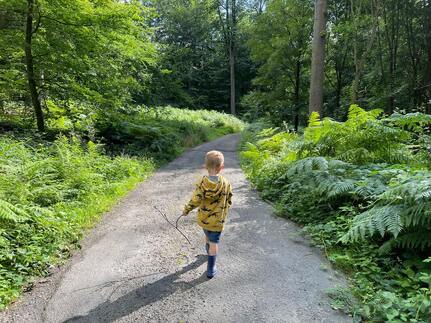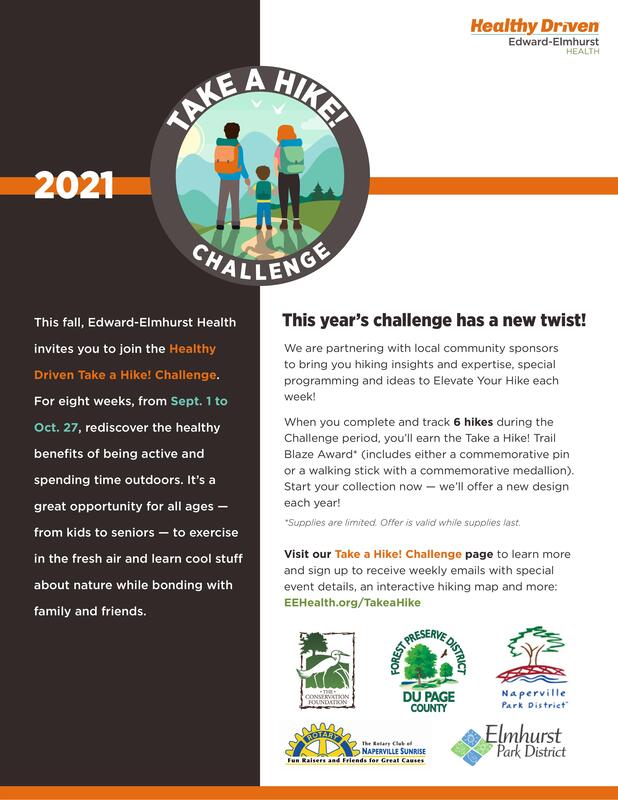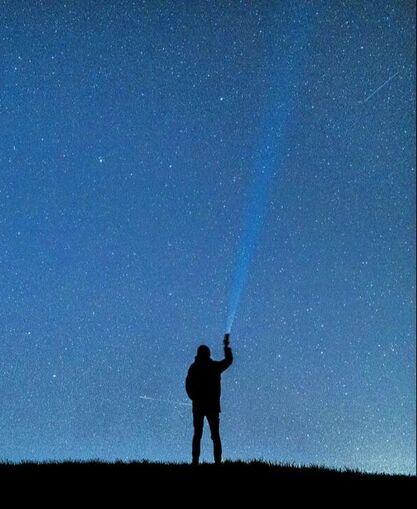Newsletter from Thursday, August 5th, 2021
Dear NCH2 Community,
We hope you and your families are staying safe and well. Please submit materials for the next newsletter by Aug 18th, 2021 so we can make sure to include them. Submit items by emailing [email protected].
This week's newsletter includes a blog post written by students on current research, upcoming local events, information on national and international conferences, a job openings in the local area, and links to articles in the research literature and popular press.
This week's newsletter includes a blog post written by students on current research, upcoming local events, information on national and international conferences, a job openings in the local area, and links to articles in the research literature and popular press.
Students & Staff Reading Recent Research
|
This past quarter the Horton Research Group has started having students read current research papers and present the findings and methods to lab meetings, including creating a blog post about the papers to make them more accessible to those who may not have the time or resources to read the entire papers in their free time. We invite others who might want to try their hand at blogging to submit potential posts. Submit items of 500 words or less to [email protected]. Our second blog post is written by Arseniy Minasov.
Blog Post Teaser: Can Simulated Nature Support Mental Health? Comparing Short, Single-Doses of 360-Degree Nature Videos in Virtual Reality With the Outdoors. Don’t Count VR Out of Providing the Benefits of Nature Virtual Reality (VR), one of the newest and most powerful technological advancements, may help connect the realms of technology and psychology. VR, used in fields of both medicine and entertainment, is a simulated environment that displaces the user through visual and auditory stimuli into another environment. With the dual aspects of increased realism and escapism, VR may offer a replacement for visual and auditory stimulation when it comes to simulating real-world psychological benefits, such as exposure to nature and open space/green space. A VR intervention would, expectedly, be weaker than a real exposure to nature, but those for whom a real-life encounter is impossible may benefit from the virtual experience. In a 2020 study, researchers at the University of Illinois at Urbana-Champaign sought to understand where along the spectrum of “no physical exposure to nature” to “extensive exposure to nature” VR lies. To read the full blog post by Arseniy click here. Source Article: Browning, M., K. J. Mimnaugh, C. J. van Riper, H. K. Laurent and S. M. LaValle (2019). "Can Simulated Nature Support Mental Health? Comparing Short, Single-Doses of 360-Degree Nature Videos in Virtual Reality With the Outdoors." Frontiers in Psychology 10: 2667. https://www.ncbi.nlm.nih.gov/pubmed/32010003 |
About Arseniy Minasov
Arseniy Minasov is the Research Coordinator at Northwestern’s Department of Anthropology (Dr. Horton Research Group): Health Benefits of Nature. He graduated from Northwestern in 2018 with a B.A. in Biological Anthropology. He studies technology, gaming, and the intersection of nature-based interventions with technology and medicine, while also enjoying competitive gaming and triathlons. |
Local Events
|
Take a Hike Challenge
Date: Sept. 1 to Oct. 27 Description: This fall, we invite you to join the Healthy Driven Take a Hike! Challenge. For eight weeks, from Sept. 1 to Oct. 27, rediscover the healthy benefits of being active and spending time outdoors. It’s a great opportunity for all ages — from kids to seniors — to exercise in the fresh air and learn cool stuff about nature while bonding with family and friends. We are partnering with local community sponsors to bring you hiking insights and expertise, special programming and ideas to Elevate Your Hike each week! The Take a Hike! Tracker can be printed or picked up at one of our sponsor locations. When you complete and track 6 hikes during the 8-week Challenge period, you’ll earn the Take a Hike! Trail Blaze Award. For more information, a Take a Hike! Tracker, and registration click here. |
|
Forest Preserves of Cook County Falling Star Watch
Date: Wednesday, August 11, 2021 Time: 10 pm - 11 pm Location: Little Red Schoolhouse Nature Center 9800 Willow Springs Rd Willow Springs, IL 60480 Description: We will be watching for falling stars tonight, which is part of the Perseid Meteor Showers. This is the night which should provide a maximum number of sightings right after the moon sets. Bring a chair to sit in. All visitors over 2 years of age must wear a mask indoors at all times. Unvaccinated visitors should also wear a mask outdoors when physical distancing (six feet from other people) is not possible. REGISTRATION REQUIRED: Call Little Red Schoolhouse at 708-839-6897. For more information, click here. Photo by Felix Mittermeier from Pexels |
|
Forest Preserves of Cook County Songs of Summer Nights
Date: Thursday, August 12, 2021 Time: 7 pm - 9 pm Location: Sagawau Environmental Learning Center 12545 West 111th St Lemont, IL 60439 Description: Who is singing tonight? Enjoy the chorus of insects as the sun sets. Learn about how and why crickets, katydids, cicadas and grasshoppers sing. Unvaccinated visitors must wear a mask indoors at all times; and they must wear a mask outdoors when physical distancing (six feet from other people) is not possible. REGISTRATION REQUIRED: Call Sagawau at 630-257-2045. For more information, click here. Photo by Maksim Romashkin from Pexels |
National and International Conferences
|
University of Washington, Nature & Health Virtual Conference: Generating Understanding Across Communities and Disciplines
Date: October 12-14, 2021 Location: via Zoom Description: Nature and Health seeks to understand the connections between nature and human health and well-being. We work to translate that understanding into programs, practices, policies, and the design of healthcare, educational, and community settings that benefit all people and nature. Speakers include Michelle Johnson-Jennings, Ph.D., Ed.M. (Choctaw Nation); Eugenia C. South, M.D., M.S.; Hilary Franz, Commissioner of Public Lands; and Howard Frumkin, M.D., Dr.P.H. For more information and registration, click here. Photo by Belle Co from Pexels |

2021 SHIFT Summit: Ensuring Access to Nature – For Human Health and the Environment
Date: October 18-20, 2021
Location: Grand Junction, Colorado
Description: The SHIFT Summit is a national gathering of hundreds of land managers, researchers, funders, educators, retailers, and conservationists, along with outdoor recreation, health, military, and nature therapy professionals who share experiences, evidence, and ideas for better linking of both humans and nature. The Summit is based on sound science combined with experiential, health, stewardship, and land management aspects to balance equitable reciprocity and access to the places, flora, and fauna that we all need to exist and thrive. SHIFT Awards will also be presented for organizations and individuals who are excelling in our collective work. The Summit will include a variety of research, practice, and experiential aspects, including workshops, lightning talks, panel discussions, nature and forest therapy practices, and plenty of opportunities for active outdoor recreation so we can deepen our connections to place and story.
Early Bird Registration ends August 20th.
Proposal/Abstract submissions are due August 13th.
Due to the changing status of COVID-19 SHIFT will be accepting a limited number of remote presentations. Some sessions will be live -streamed. Please, see the SHIFT website (https://www.gpred.org/shift/) for updated information as it becomes available.
For more information and registration, click here.
Date: October 18-20, 2021
Location: Grand Junction, Colorado
Description: The SHIFT Summit is a national gathering of hundreds of land managers, researchers, funders, educators, retailers, and conservationists, along with outdoor recreation, health, military, and nature therapy professionals who share experiences, evidence, and ideas for better linking of both humans and nature. The Summit is based on sound science combined with experiential, health, stewardship, and land management aspects to balance equitable reciprocity and access to the places, flora, and fauna that we all need to exist and thrive. SHIFT Awards will also be presented for organizations and individuals who are excelling in our collective work. The Summit will include a variety of research, practice, and experiential aspects, including workshops, lightning talks, panel discussions, nature and forest therapy practices, and plenty of opportunities for active outdoor recreation so we can deepen our connections to place and story.
Early Bird Registration ends August 20th.
Proposal/Abstract submissions are due August 13th.
Due to the changing status of COVID-19 SHIFT will be accepting a limited number of remote presentations. Some sessions will be live -streamed. Please, see the SHIFT website (https://www.gpred.org/shift/) for updated information as it becomes available.
For more information and registration, click here.

Save the Date:
Children and Nature Network: Inside Out International Conference
Date: May 9-12, 2022
Location: Hyatt Regency Atlanta, GA
Description: The Inside-Out International Conference is the largest gathering of nature connection advocates in the world. We will bring together children and nature movement leaders (like you!) in the vibrant city of Atlanta, Georgia. The conference will feature inspiring keynotes, plenaries, workshops, exhibit hall, poster session, field trips, networking, and more.
A call for proposals will open in Summer 2021.
The Inside-Out International Conference and year-round Leadership Series events bring children and nature leaders together for networking, workshops, special events and our world-class conference. Let’s turn the trend of an indoor childhood back out to the benefits of nature!
For more information, click here.
Children and Nature Network: Inside Out International Conference
Date: May 9-12, 2022
Location: Hyatt Regency Atlanta, GA
Description: The Inside-Out International Conference is the largest gathering of nature connection advocates in the world. We will bring together children and nature movement leaders (like you!) in the vibrant city of Atlanta, Georgia. The conference will feature inspiring keynotes, plenaries, workshops, exhibit hall, poster session, field trips, networking, and more.
A call for proposals will open in Summer 2021.
The Inside-Out International Conference and year-round Leadership Series events bring children and nature leaders together for networking, workshops, special events and our world-class conference. Let’s turn the trend of an indoor childhood back out to the benefits of nature!
For more information, click here.
Local Job Openings
The Nature Conservancy, Trinity United Church of Christ, and a team of partners behind the Imani Green Health Advocates Program are recruiting paid, 12 week career training positions based out of Imani Village near 95th and Cottage Grove in Chicago. The Imani Green Health Advocates Program trains young people aged 18-25 in community health and urban forestry job skillsets, while engaging community members in conservation and health-promoting programs in Washington Heights, Cottage Grove Heights, Chatham, Pullman, West Pullman and adjacent areas. We are seeking candidates from South Side communities with interest and a strong learning and work ethic - no or limited experience is ok! More info and application here: https://bit.ly/3ALyAEJ. For more information contact Forrest Cortes [email protected].
The Nature Conservancy, Trinity United Church of Christ, and a team of partners behind the Imani Green Health Advocates Program are recruiting paid, 12 week career training positions based out of Imani Village near 95th and Cottage Grove in Chicago. The Imani Green Health Advocates Program trains young people aged 18-25 in community health and urban forestry job skillsets, while engaging community members in conservation and health-promoting programs in Washington Heights, Cottage Grove Heights, Chatham, Pullman, West Pullman and adjacent areas. We are seeking candidates from South Side communities with interest and a strong learning and work ethic - no or limited experience is ok! More info and application here: https://bit.ly/3ALyAEJ. For more information contact Forrest Cortes [email protected].
Recent Research
Can Simulated Nature Support Mental Health? (This article is the topic of this week's blog piece.)
Author's Abstract: Nature exposure in virtual reality (VR) can provide emotional well-being benefits for people who cannot access the outdoors. Little is known about how these simulated experiences compare with real outdoor experiences. We conduct an experiment with healthy undergraduate students that tests the effects of 6 min of outdoor nature exposure with 6 min of exposure to a 360-degree VR nature video, which is recorded at the outdoor nature exposure location. Skin conductivity, restorativeness, and mood before and after exposure are measured. We find that both types of nature exposure increase physiological arousal, benefit positive mood levels, and are restorative compared to an indoor setting without nature; however, for outdoor exposure, positive mood levels increase and for virtual nature, they stay the same. The nature-based experience shows benefits above and beyond the variance explained by participants' preferences, nature and VR experiences, and demographic characteristics. Settings where people have limited access to nature might consider using VR nature experiences to promote mental health.
Citation: Browning, M., K. J. Mimnaugh, C. J. van Riper, H. K. Laurent and S. M. LaValle (2019). "Can Simulated Nature Support Mental Health? Comparing Short, Single-Doses of 360-Degree Nature Videos in Virtual Reality With the Outdoors." Frontiers in Psychology 10: 2667. https://www.ncbi.nlm.nih.gov/pubmed/32010003
Can Simulated Nature Support Mental Health? (This article is the topic of this week's blog piece.)
Author's Abstract: Nature exposure in virtual reality (VR) can provide emotional well-being benefits for people who cannot access the outdoors. Little is known about how these simulated experiences compare with real outdoor experiences. We conduct an experiment with healthy undergraduate students that tests the effects of 6 min of outdoor nature exposure with 6 min of exposure to a 360-degree VR nature video, which is recorded at the outdoor nature exposure location. Skin conductivity, restorativeness, and mood before and after exposure are measured. We find that both types of nature exposure increase physiological arousal, benefit positive mood levels, and are restorative compared to an indoor setting without nature; however, for outdoor exposure, positive mood levels increase and for virtual nature, they stay the same. The nature-based experience shows benefits above and beyond the variance explained by participants' preferences, nature and VR experiences, and demographic characteristics. Settings where people have limited access to nature might consider using VR nature experiences to promote mental health.
Citation: Browning, M., K. J. Mimnaugh, C. J. van Riper, H. K. Laurent and S. M. LaValle (2019). "Can Simulated Nature Support Mental Health? Comparing Short, Single-Doses of 360-Degree Nature Videos in Virtual Reality With the Outdoors." Frontiers in Psychology 10: 2667. https://www.ncbi.nlm.nih.gov/pubmed/32010003
Design considerations for outdoor environments for older adults.
Author's Abstract: The outdoor environment offers an important platform for engaging older adults from a variety of social, cultural and ethnic orientations for the purpose of improving or maintaining their physical and mental health as well as facilitating their social and cultural connections. Using a multidisciplinary lens, this study looks at the requirements and potential of a more inclusive landscape design that acknowledges different modes of health, recovery and rehabilitation, drawing from both the past and the future and providing suggestions on how more efficient and culturally appropriate ways of maintaining health and social connectivity can be achieved in later life.
Citation: McIntosh, J., B. Marques, J. Cornwall, C. Kershaw and R. Mwipiko (2021). "Therapeutic Environments and the Role of Physiological Factors in Creating Inclusive Psychological and Socio-Cultural Landscapes." Ageing International. https://doi.org/10.1007/s12126-021-09452-8
Author's Abstract: The outdoor environment offers an important platform for engaging older adults from a variety of social, cultural and ethnic orientations for the purpose of improving or maintaining their physical and mental health as well as facilitating their social and cultural connections. Using a multidisciplinary lens, this study looks at the requirements and potential of a more inclusive landscape design that acknowledges different modes of health, recovery and rehabilitation, drawing from both the past and the future and providing suggestions on how more efficient and culturally appropriate ways of maintaining health and social connectivity can be achieved in later life.
Citation: McIntosh, J., B. Marques, J. Cornwall, C. Kershaw and R. Mwipiko (2021). "Therapeutic Environments and the Role of Physiological Factors in Creating Inclusive Psychological and Socio-Cultural Landscapes." Ageing International. https://doi.org/10.1007/s12126-021-09452-8
What types of greenspace protect mental health during COVID-19?
Author's Abstract: The current COVID-19 pandemics is a major threat to human populations. The disease has rapidly spread, causing mass hospitalization and the loss of millions of people mainly in urban areas which are hubs for contagion. At the same time, the social distancing practices required for containing the outbreak have caused an eruption of mental illnesses that include symptoms of depression, anxiety and stress. The severity of such mental distress is modulated by the context of media coverage and the information and guidelines from local health authorities. Different urban green infrastructures, such as gardens, parks, and green views can be important for mitigating mental distress during the pandemics. However, it is unclear whether some urban green infrastructures are more efficient than others in reducing mental distress or whether their effectiveness changes with the context. Here we assess the relative importance of different urban green infrastructures on the mental distress of residents of Rio de Janeiro, Brazil. We show that although urban parks and green views are important, home gardens are the most efficient in mitigating mental distress. This is likely related to the practice of self-isolation seen for the residents of Rio de Janeiro. Information on the efficiency of different urban green infrastructures in mitigating mental distress can be important to help guide programs to inform the public about the best practices for maintaining mental health during the current outbreak. This can also help planning cities that are more resilient to future pandemics.
Citation: Marques, P., A. S. Silva, Y. Quaresma, L. R. Manna, N. de Magalhães Neto and R. Mazzoni (2021). "Home gardens can be more important than other urban green infrastructure for mental well-being during COVID-19 pandemics." Urban Forestry & Urban Greening: 127268. https://www.sciencedirect.com/science/article/pii/S1618866721002958.
Check out our Recent Research Page for more peer-reviewed articles of interest!
Happy reading!
Author's Abstract: The current COVID-19 pandemics is a major threat to human populations. The disease has rapidly spread, causing mass hospitalization and the loss of millions of people mainly in urban areas which are hubs for contagion. At the same time, the social distancing practices required for containing the outbreak have caused an eruption of mental illnesses that include symptoms of depression, anxiety and stress. The severity of such mental distress is modulated by the context of media coverage and the information and guidelines from local health authorities. Different urban green infrastructures, such as gardens, parks, and green views can be important for mitigating mental distress during the pandemics. However, it is unclear whether some urban green infrastructures are more efficient than others in reducing mental distress or whether their effectiveness changes with the context. Here we assess the relative importance of different urban green infrastructures on the mental distress of residents of Rio de Janeiro, Brazil. We show that although urban parks and green views are important, home gardens are the most efficient in mitigating mental distress. This is likely related to the practice of self-isolation seen for the residents of Rio de Janeiro. Information on the efficiency of different urban green infrastructures in mitigating mental distress can be important to help guide programs to inform the public about the best practices for maintaining mental health during the current outbreak. This can also help planning cities that are more resilient to future pandemics.
Citation: Marques, P., A. S. Silva, Y. Quaresma, L. R. Manna, N. de Magalhães Neto and R. Mazzoni (2021). "Home gardens can be more important than other urban green infrastructure for mental well-being during COVID-19 pandemics." Urban Forestry & Urban Greening: 127268. https://www.sciencedirect.com/science/article/pii/S1618866721002958.
Check out our Recent Research Page for more peer-reviewed articles of interest!
Happy reading!

In the News
Overview: This USA Today article discusses a recent study conducted over four years to see the affect access to green spaces has on children's' cognitive development and mental health. "The more children were exposed to green spaces such as woods and parks, the higher they scored for cognitive development, according to the study. And the participants accessing more green spaces were 17% less likely to experience emotional and behavioral risks." This article also discusses the affect the pandemic might have on children's health since the start of online schooling, as well as links tips for children's mental health as they return to the classroom.
Read more here: Spending more time in nature crucial to children's mental health and development, study say. Gabriela Miranda. USA Today. July 2021. https://www.usatoday.com/story/news/health/2021/07/20/time-nature-benefits-childs-mental-health-cognitive-development/8025064002/
Photo by David Slaager from Pexels
Overview: This USA Today article discusses a recent study conducted over four years to see the affect access to green spaces has on children's' cognitive development and mental health. "The more children were exposed to green spaces such as woods and parks, the higher they scored for cognitive development, according to the study. And the participants accessing more green spaces were 17% less likely to experience emotional and behavioral risks." This article also discusses the affect the pandemic might have on children's health since the start of online schooling, as well as links tips for children's mental health as they return to the classroom.
Read more here: Spending more time in nature crucial to children's mental health and development, study say. Gabriela Miranda. USA Today. July 2021. https://www.usatoday.com/story/news/health/2021/07/20/time-nature-benefits-childs-mental-health-cognitive-development/8025064002/
Photo by David Slaager from Pexels






